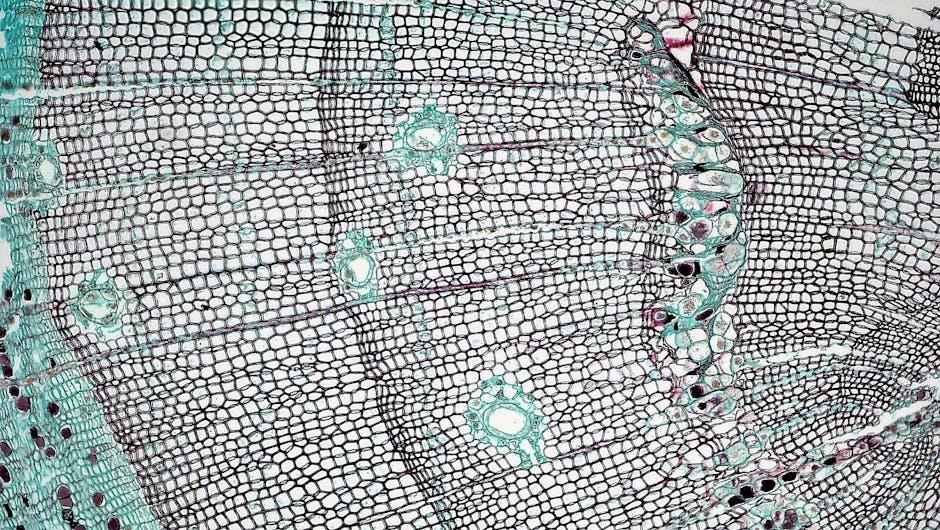
Stem Cells from Extracted Wisdom Teeth Are Like ‘Medical Gold,’ Able to Treat Multiple Diseases – Earth.com
In recent years, the medical community has discovered an incredible new resource hidden in the mouth: stem cells from extracted wisdom teeth. These stem cells, often overlooked, have been dubbed “medical gold” because of their remarkable potential to treat a wide array of diseases and injuries. This article explores the promising world of wisdom tooth stem cells, their benefits, applications, and how they could transform the future of regenerative medicine.
What Are Stem Cells from Wisdom Teeth?
Stem cells are undifferentiated cells capable of developing into many different cell types, offering immense therapeutic potential. Extracted wisdom teeth—specifically, the dental pulp inside these teeth—contain a rich source of mesenchymal stem cells (MSCs). These dental pulp stem cells (DPSCs) are easy to collect and have been shown to differentiate into bone, cartilage, muscle, nerve, and even fat cells.
Unlike embryonic stem cells, DPSCs are ethically easier to obtain and carry a lower risk of immune rejection, making them highly attractive for clinical use.
Why Are Wisdom Tooth Stem Cells Called ‘Medical Gold’?
Wisdom teeth stem cells have earned the nickname “medical gold” for several compelling reasons:
- Abundance and Accessibility: Wisdom teeth are commonly extracted in teens or young adults, creating a readily available source of stem cells that otherwise would be discarded.
- Potent Regenerative Capacity: These stem cells have a high ability to regenerate various tissues, which is crucial for treating complex diseases.
- Lower Ethical Concerns: They originate from the patient’s own teeth, reducing ethical issues linked to stem cell therapies derived from embryos.
- Reduced Risk of Rejection: Autologous use (using one’s own cells) limits immune reactions and complications.
Applications of Wisdom Teeth Stem Cells in Medicine
Research suggests that harvested stem cells from wisdom teeth can be used in many medical areas, including:
- Orthopedics: Regenerating bone and cartilage to treat fractures and osteoarthritis.
- Neurology: Repairing nerve damage and possibly combating neurodegenerative diseases like Parkinson’s and Alzheimer’s.
- Cardiology: Aiding in the regeneration of heart tissues post-heart attack.
- Diabetes Treatment: Potentially supporting pancreatic cell regeneration and insulin production.
- Dental and Oral Surgery: Improving oral tissue repair and implant survival.
Cutting-Edge Research Highlights
Earth.com reports groundbreaking studies showcasing the therapeutic effects of wisdom teeth stem cells, such as:
- Advanced tissue engineering using DPSCs to create bioengineered dental implants.
- Successful regeneration of damaged brain tissues in animal models.
- Use of stem cells in treating immune disorders and inflammatory conditions.
Benefits of Banking Stem Cells from Wisdom Teeth
Medical experts encourage young adults undergoing wisdom teeth extraction to consider banking their dental stem cells for future therapeutic use. The benefits include:
- Personalized Medicine: Customized treatments made from your own cells.
- Early Collection: Stem cells collected from younger individuals are generally more potent and abundant.
- Future Proofing Health: Potential to treat future illnesses that current medicine can’t fully manage.
Practical Tips for Stem Cell Banking
- Research and select a reputable dental stem cell banking company with proper certifications.
- Arrange to have your wisdom teeth collected immediately after extraction to ensure cell viability.
- Consult with your dentist or oral surgeon about stem cell banking during your extraction process.
- Understand the storage fees, services, and future use policies before signing any agreements.
First-Hand Experiences: Patients and Providers
Many patients who have banked their wisdom tooth stem cells share a sense of relief and empowerment, knowing they have a biological “insurance policy” for emerging treatments. Oral surgeons and dentists also report increasing patient interest in this innovative approach.
“Extracting wisdom teeth isn’t just about removing a problem tooth anymore. It’s about unlocking a treasure trove of cells that could one day save lives.” – Dr. Amanda Cross, Oral Surgeon
Comparison Table: Stem Cells from Wisdom Teeth vs Other Sources
| Stem Cell Source | Accessibility | Ethical Concerns | Differentiation Potential | Risk of Rejection |
|---|---|---|---|---|
| Wisdom Teeth (DPSCs) | High (commonly extracted) | Low | High (mesenchymal lineage) | Low (autologous use) |
| Bone Marrow | Moderate (invasive extraction) | Low | High | Moderate |
| Umbilical Cord | Only at birth | Low | Moderate to High | Low |
| Embryonic Stem Cells | Ethically Challenging | High | Very High | High |
Conclusion: The Future of Regenerative Medicine Lies in Wisdom Teeth Stem Cells
Stem cells from extracted wisdom teeth represent a transformative frontier in modern medicine. Often discarded as dental waste, these stem cells hold the key to treating a wide spectrum of diseases, from nerve injuries to chronic degenerative conditions. By understanding the benefits and possibilities of these “medical gold” cells, patients and healthcare providers can work together to harness their full potential.
If you or a loved one are scheduled for wisdom tooth extraction, consider the lasting value of banking these cells. With ongoing research and increasing clinical applications, stem cells from wisdom teeth might soon become a cornerstone of personalized medical treatments.
Stay informed on the latest stem cell advancements at Earth.com and take a step towards future-proofing your health today!


